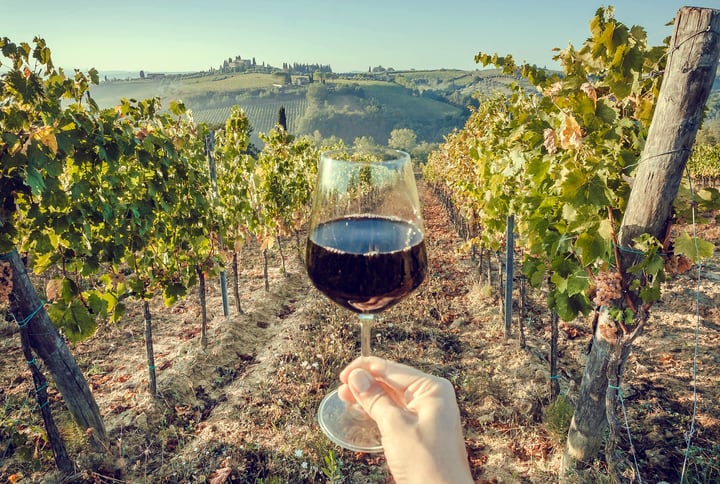Globally, wine consumption figures are flat: in fact falling over the last few years (down 3.6% in 2020, according to OIV, although this year was impacted by COVID-19).
Organic wine, however, may offer a bright point for the wine industry: although still a niche sector, it is showing strong growth in some key wine markets where it is becoming a regular purchase for wine drinkers.
And its sustainability credentials are helping it resonate with younger consumers: a complex demographic the traditional wine industry has sometimes struggled to appeal to.
Consumers now buy organic more often
Organic wine is increasingly resonating with consumers. In Western Europe - a traditional wine consuming region thanks to mega producers France, Spain and Italy - around 29% of consumers say they have made organic wine part of their consumer basket. This represents an increase from 2015 when this figure was 17%.
In France – a leader in both producing and consuming wine – the increased interest has been particularly pronounced: 36% of consumers drink organic wine.
“For me, the most significant thing is that we have gone from curiosity-based consumption to structural consumption,” said Nicolas Richarme, president of the southern French organic wine trade association SudVinBio. The association brings together more than 500 companies from the organic sector and stages the Millesime Bio organic wine trade fair in Montpellier every year.
“The gap has gone down between consumers who say they have drunk organic wine, even if only once in their lives, and regular consumers. More than a third of French consumers buy organic wine often.
“What is more, the dynamic is clearly in favor of organic products: in markets where wine consumption in general is going down, consumption of organic wine is increasingly, whether occasional or regular. That means the volume of organic wine is going up and so is its strategic importance. Consumption is changing and moving towards organic wine.”
Appealing to a younger drinker
But what is most interesting is that organic wine appeals to younger consumers than the average wine drinker: boding well for the future.
Ahead of Millesime Bio, IPSOS surveyed 3,000 people across France, the UK and Germany. Around 46% of under 35s have already consumed organic wine: compared to just 38% of over 55s. And the average consumer profile is that of a young, urban, high-income graduate.
A lot of the interest in organic wine comes from concerns about the environment: often considered to be more pronounced among millennials.
European consumers are increasingly 'green'.
- 81% say they are very concerned about the future of the planet
- 77% believe it is important to know where food comes from
- 63% are willing to pay more for products that help protect the environment
- 63% think organic products are better for health
- and 48% say they often buy organic products
Around 61% of those surveyed believe that organic wine is more environmentally friendly: representing the biggest driver towards organic product. But societal and ethical concerns are there too. For example, 35% of consumers believe that organic promotes fairer trade.
Other factors driving consumers towards organic wine is the perception that it is healthier and of higher quality.
While these insights come from Western Europe, they could be relevant to many other markets elsewhere: particularly in the US where the wine industry caters for an aging consumer base but has arguably failed to market its products to younger consumers.
Yes, organic wine is more expensive - but consumers are willing to pay extra
On average, consumers are willing to pay €11 on a standard bottle of wine: but are prepared to pay an extra €2.90 for organic. This is more than in 2015: when the difference was 90 cents.
This dynamic is probably linked, suggests researchers, to increased awareness of fair pay for producers and a growing willingness to pay more for better quality products (63% of Europeans (whether wine consumers or not) are willing to pay more for products that help to protect the environment compared to 57% in 2015).
Facing the challenges
Organic wine, however, does remain a niche category. One of the biggest and most-documented challenges for organic wine is the cost: with 36% of consumers who don’t consume organic wine citing this as a reason.
But with people now willing to pay more for quality, this may no longer be the biggest barrier. More importantly, consumers want to know more about what they're paying for. In fact, 38% said that they didn’t buy organic because they lacked information about the product, showing a need to educate consumers about the category and what makes organic wine different.
And availability is another problem: 23% said that organic wine was not easily available or in places they usually shop.
But if these problems can be addressed, the runway is open for more growth: with within wine and in neighboring categories.
“There are still barriers to be overcome," said Richarme. "For instance, with regard to information, markets are not yet perfectly aware of organic wine, and that suggests there is still plenty of room for growth if we can educate people.
“And wine is a vehicle that is pulling other sectors along with it, such as cider and beer. One of the pleasant surprises revealed by the study is that one in five European consumers buys organic beer more or less regulatory. Demand is there and it will drive supply.”

